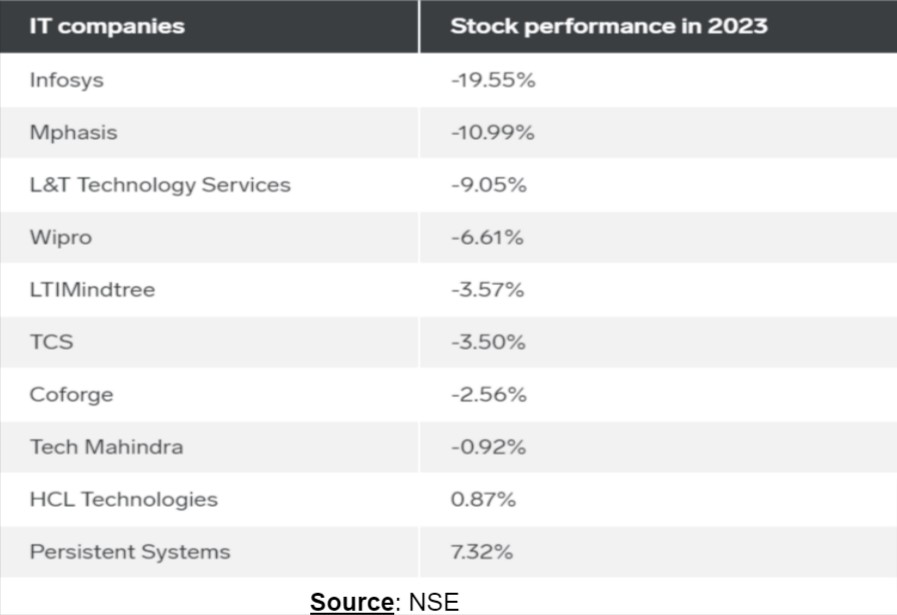Table of Contents
Introduction
Despite the business uncertainty remaining around the world, the current economic situation offers the Indian IT industry an opportunity to expand its market share as organizations tighten their belts and move many jobs to India.
With the IT industry long recognized as a global powerhouse, it serves a large number of customers around the world by facilitating solutions and services, including consultation, deployment of hardware, integration of systems etcetera. Also, it is projected to contribute 10% to India’s GDP by 2025.
Recently, the world has experienced an exponential global crisis that has affected businesses and industries all over the world. However, in the face of crisis and competition, the Indian IT industry emerged as a beacon of hope by seizing opportunities from this crisis and charting the path of development and management in the global economy.

Key to Accelerated Digital Transformation:
The global crisis has accelerated the digital transformation of businesses in different sectors. As organizations try to adapt to remote workplaces and ensure business continuity and efficiency, the demand for new solutions is increasing. Known for its expertise, the Indian IT industry has positioned itself as the business partner of choice for organizations seeking digital transformation.
From cloud computing to cybersecurity, data analytics, and artificial intelligence, Indian IT companies are at the forefront of providing solutions to customers worldwide.
Increased relocation, and redistribution:
The global crisis is forcing organizations to review production costs and find ways to improve resources. As a result, offshore and outsourcing are on the rise, with companies trying to cut costs while maintaining quality and efficiency.
Indian IT companies have a reputation for providing cost-effective, quality services and have become the first choice for organizations worldwide. These trends have strengthened India’s position as a preferred outsourcing location and present great opportunities for the Indian IT industry.
Remote Workforce Advantages:
The global crisis has forced organizations to adopt remote working models to ensure business continuity. Indian IT companies with a talented and flexible workforce are transitioning to remote working environments.
The Indian IT industry leverages the power of technology to facilitate collaboration, communication, and project management across geography. The advantage of these remote workers is not only to ensure that services are not interrupted but also to increase the competitiveness of the business in the international market.
Focus on Health and Life Sciences:
The global crisis is placing a new emphasis on health and life sciences. The demand for new treatments, telemedicine, vaccines, and clinical data is increasing.
The Indian IT industry has overcome the challenge of leveraging its skills and expertise to develop healthcare IT solutions. This focus on healthcare and life sciences has spawned many business products, creating new growth opportunities for Indian IT companies.

Challenges Facing the Industry:
Despite so many opportunities ahead, IT companies in India will face many challenges in 2024. Indian IT companies are in trouble after Silicon Valley Bank and Signature Bank went bankrupt in March and business problems in Europe and America were caused by the Credit Suisse crisis. Shares of 4,444 major IT companies, including TCS, Infosys, and Wipro, are also near 52-week lows since March, given IT companies’ exposure to US banks during crisis financing. BFSI’s clients are the largest IT companies in India.
Analysts at JPMorgan also highlighted weaknesses in the business, financial services, insurance (BFSI), and communications sectors that will impact Tech Mahindra and Mphasis as they have so much influence over this industry.
Strengthening Indian IT Industry:
India’s position as a global technology hub is getting stronger as India’s IT industry continues to evolve clearly during the global crisis.
Global investors and tech companies are increasingly taking a look at India’s vast resources and business ecosystem. This led to an increase in foreign direct investment (FDI) in the Indian IT industry, fueling the growth of the industry. The Indian government also continued its expansion and influence on the world stage by supporting the industry with its policies and strategic plans.
Conclusion:
While the global crisis has undoubtedly created major and devastating challenges, it has also posed a unique set of challenges for the Indian IT industry. Its business agility, expertise, and effective solutions make it the preferred partner for international organizations.
As the Indian IT industry continues to find its way through the changing global economy, it is poised to take advantage of the opportunities from this crisis to support innovation and growth and establish itself as a major force in the world.













